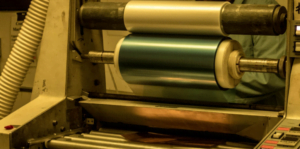
Our customers often ask “What is chemical etching?” WET ETCH. specializes in this precise chemical etching process, which allows metal parts to be produced to very close tolerances using computer-aided design software, along with photography, chemistry, and metallurgy technologies. This cost-effective metal etching process allows us to quickly produce thin metal parts for many different applications. Our photo etching process can be broken down into several steps.
Phototool Design / CAD Design
Designs are submitted to us by customers, as a .DXF or .DWG file, or a drawing with which we create a phototool. Mailed or e-mailed, the file is converted into the working phototool our technicians use during every step in creating the final product. Adjustments and redesigns can be made quickly and cost-effectively by our experienced technicians.
Metal Selection & Prep
- Stainless steel

- Brass
- Copper
- Bronze
- Aluminium
- Titanium
- Nitinol
- Molybdenum
- Zinc
- Nickel
- Silver
- Gold
- Magnesium
- Inconel
- Nickel Silver
- Phosphor Bronze
- Beryllium Copper
- Mu Metal
Next, the metals to be used in the project are selected. Materials can include copper alloys, stainless steel, aluminum alloys, or nickel alloys. Prior to chemical etching, the metal is cut into sheets and cleaned. Any oil, grease, or oxidation is removed from the metal sheet to be processed.
Photoresist Coating – Preparation for Photo Etching on Metal
 A photosensitive material is then applied to the sheet. Sensitive to light, and resistant to acids, the photoresist is applied using a specialized coating machine in our facility. This photosensitive coating will allow photo etching on metal that needs to be removed, and shield the metal that becomes the part. This photosensitive etching process, also known as photo chemical etching or chemical etching on stainless steel ensures precision cut metal every time.
A photosensitive material is then applied to the sheet. Sensitive to light, and resistant to acids, the photoresist is applied using a specialized coating machine in our facility. This photosensitive coating will allow photo etching on metal that needs to be removed, and shield the metal that becomes the part. This photosensitive etching process, also known as photo chemical etching or chemical etching on stainless steel ensures precision cut metal every time.
UV Exposure
Once it is coated, the sheet is put into an exposure unit. It’s placed between two pieces of film, which have been designed based on the files submitted by the customer. The sheet is exposed to UV light on both sides. When light touches the resist it becomes hard or polymerized, and areas shaded from light remain soft.
Development
During the development process, the soft resist is washed away, leaving behind the hard resist. Where the soft resist has been developed away, we are left with exposed material which will be dissolved away by the heated etchant. Areas with hardened resist will be protected from the etchant and become the parts desired.
Chemical Etching
The etching process uses a range of etchants, depending on the base material used. Matching the appropriate chemicals ensures a more effective chemical machining process, in which etching metal is fast and effective. Metal burrs are not created with chemical etching.
A video to let you know the working process of PCB etching
Photoresist Stripping
After etching the resist is completely removed, yielding the metal components the client has ordered and specified in the files they submitted.
Final Inspection
Parts are then inspected, ensuring it meets proper dimensional specifications, is burr-free, and have no other imperfections or defects. Our team also ensures all parts meet high quality standards when value-added processes such as forming, laser welding, soldering, or plating are requested.
Chemical Etching Helps Organizations Solve Problems
Today’s business world presents the same problems it always has: production time, cost, budget, and manpower. Photo chemical etching is a manufacturing service with a wide reputation for resolving some of the biggest problems that revolve around those areas. Due to the fact that the production method doesn’t require a large team of engineers and designers, and considering that photo chemical etching is known for creating custom thin metal parts in a quick manner with no errors, the method is widely favored.

